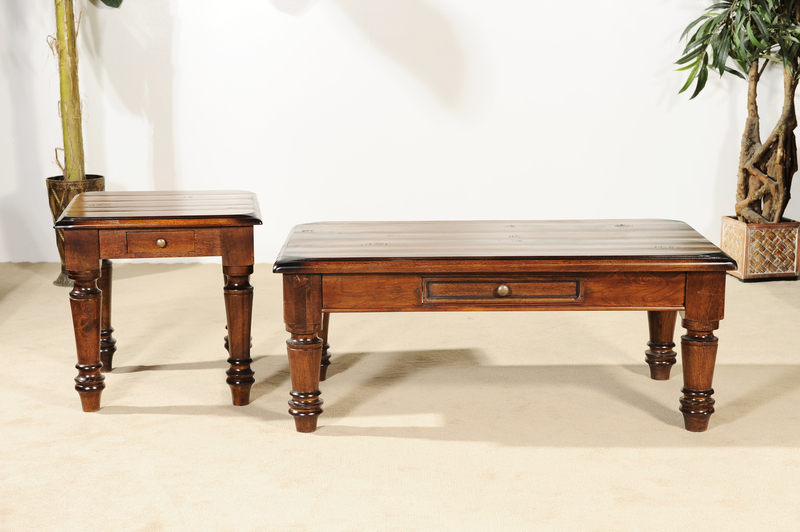How to Handle Bulky Waste Items on a Tight Budget
Dealing with bulky waste items on a tight budget can feel overwhelming, especially when you're faced with hefty disposal fees or limited resources. Whether you're decluttering, renovating, or moving, large unwanted objects such as old furniture, appliances, mattresses, or electronics can quickly pile up. Fortunately, there are several creative, cost-effective solutions that don't break the bank. This comprehensive guide will walk you through actionable steps and essential tips to manage bulky waste disposal efficiently, affordably, and responsibly.
Understanding Bulky Waste Items
Bulky waste typically refers to household items that are too large or heavy for regular trash collection. These include:
- Old furniture (couches, chairs, tables, dressers)
- Mattresses and box springs
- Large appliances (refrigerators, washers, dryers)
- Carpets and rugs
- Large electronics (TVs, computers, home theater equipment)
- Yard waste and debris (tree limbs, lawn equipment, fencing)
Handling large waste items on a tight budget requires a mix of planning, resourcefulness, and community engagement. With the right approach, you can minimize costs and even help the environment.

Why Is Bulky Waste Disposal Expensive?
Most municipal garbage services don't cover bulky items in their regular pickups, often requiring special arrangements that come with substantial fees. Factors contributing to high costs include:
- Extra labor for lifting and moving large items
- Transportation and fuel costs
- Recycling or landfill tipping fees
- Equipment such as trucks, lifts, and dumpsters
When you're watching your expenses, it pays to explore every possible avenue before going for paid removal or landfill options.
Smart, Low-Cost Strategies for Bulky Waste Removal
1. Repurpose, Repair, or Upcycle What You Can
One of the most cost-effective ways to manage bulky waste is to minimize it in the first place. Before you schedule pickups or rent dumpsters, ask:
- Can the item be repaired? Small fixes may revive worn-out furniture or appliances for further use.
- Can it be repurposed? Old shelves, doors, or wood pieces can become DIY projects or garden beds.
- Is upcycling an option? Transform a vintage dresser into bathroom storage or convert shipping pallets into furniture.
*Tip:* Search online for DIY upcycling ideas and tutorials!
2. Sell or Give Away Bulky Items Locally
If your items still have life in them, turning bulky waste into valuable goods is a win-win. Consider:
- Local classifieds: Post on Craigslist, Facebook Marketplace, Nextdoor, or OfferUp for free or at a low price.
- "Curb Alert": Place usable items by the roadside with a "free" sign--many communities have active curb-shoppers.
- Community boards: Share with neighbors, local schools, or community centers who might need furniture, appliances, or computers.
Giving away large unwanted items can save you disposal costs and help someone in need.
3. Donate to Charities and Nonprofits
- Thrift stores: Many accept gently-used furniture, appliances, and electronics.
- Shelters and non-profits: Some organizations offer free pickup for large donations and provide tax receipts.
- Building material reuse centers: Donate cabinets, doors, sinks, and fixtures to places like Habitat for Humanity ReStore.
*Make sure to call ahead* for donation rules and pickup availability.
4. Leverage Community Bulk Waste Collection Events
Many towns and cities organize free bulky item pick-up days once or twice a year. These events allow residents to put large items on the curb for collection, often at no extra charge. Check:
- Your city's website or waste management calendar
- Community newsletters or bulletin boards
- Neighborhood associations or local government offices
Plan ahead and coordinate with neighbors for the next event--space may be limited.
5. Visit Local Landfills and Recycling Centers
If you must haul items yourself, compare landfill and recycling center fees. Tips for saving money at these sites:
- Sort eligible items for recycling: Electronics, metal appliances, and mattresses may be processed for less.
- Ask about free drop-off days: Many facilities offer days when residents can dump certain items for free.
- Carpool with neighbors: Share transportation costs and landfill fees, especially for large loads.
6. Rent a Trailer or Truck--Split Costs
When items are too large for regular vehicles, consider:
- Pooling resources with friends or neighbors to split trailer or cargo van rental costs
- Scheduling a single trip for several households
- Utilizing discount rental services for short time windows (hourly vs. daily rates)
Plan ahead so the vehicle is filled to capacity--maximizing efficiency and reducing expenses.
DIY Bulky Waste Disposal: Step-By-Step
1. Assess and Sort Your Bulky Items
- Decide what must go, what can be kept, and what could be sold or donated.
- Group items by type (metal, wood, electronics) for easier transportation and disposal.
2. Check Your Local Regulations
Rules for large item disposal vary. Research your town or county's:
- Bulky item pickup schedules and requirements
- Disposal or recycling center locations and fees
- Restrictions on dumping certain electronics, appliances, or hazardous materials
3. Arrange Free Pickup Where Possible
- Book appointments with local charities or nonprofits for eligible donations.
- Request special collection from your city during free event periods.
4. Safely Move and Prepare Items
Disassemble items whenever possible to save space and effort. Remove doors from refrigerators, break down bed frames, and secure heavy items with straps or bungee cords.
5. Transport and Drop Off Responsibly
- Cover your load to prevent debris from blowing away.
- Use proper lifting techniques to avoid injury (consider enlisting help for especially heavy items).
Creative Budget Solutions for Apartment Dwellers
If you live in an apartment or don't have access to a private vehicle, try these budget-friendly tips for large waste removal:
- Contact your property manager to find out if your building offers periodic bulk item pickups or special disposal areas.
- Negotiate with neighbors to share hauling services or storage for pending pickups.
- Use ride-sharing or moving platforms (like TaskRabbit, U-Haul's "Moving Help" marketplace, or local Facebook groups) to find affordable, short-term labor and transport.
*Always ensure items are left according to building policies to avoid fines.*
Eco-Friendly & Sustainable Disposal Methods
Handling bulky waste items on a budget doesn't mean sacrificing sustainability. Choosing eco-friendly options can often save you money, too!
Choose to Recycle When Possible
- Metals: Many scrap yards pay for metal appliances, bed frames, or exercise equipment--turning waste into cash!
- Electronics (E-waste): Many towns and retailers (Staples, Best Buy) offer free or low-cost e-waste recycling.
- Wood and green waste: Chipped or mulched for landscaping or composting projects.
Compost, Mulch, or Donate Organic Waste
- Branches, leaves, and stumps can sometimes be chipped or used by landscapers or community gardens.
- Contact local nurseries or zoos to see if they accept tree trimmings or untreated wood.
Common Pitfalls: What to Avoid in Affordable Bulky Waste Disposal
- Illegal dumping: Never leave items in unauthorized places--it's bad for the environment and you risk hefty fines.
- Mixing hazardous waste: Paints, chemicals, and batteries require special handling and should not be mixed with general bulky waste.
- Ignoring community resources: Many skip community pickups, donation centers, and recycling programs that save money.
- Overpaying for convenience: Spend time exploring alternatives before hiring expensive removal services.

Frequently Asked Questions on Budget Bulky Waste Disposal
How can I dispose of bulky items for free?
Leverage city-scheduled free bulky waste pickup days, give away usable goods via local online platforms, or tap into charity donations with pickup services.
What if my city has no bulk item pickup?
Check for community recycling events, local charities, or low-cost haulers. Engage with neighbors to organize collective disposal efforts or rent shared transportation.
Is it legal to leave furniture on the curb?
Always check local ordinances. In many places, curbside "free" is allowed during certain days or permit windows, but leaving items out otherwise can lead to fines.
Conclusion: Take Action and Save
Managing bulky waste items on a tight budget is possible with a little creativity, community engagement, and planning. Before scheduling expensive pickups or resorting to the landfill, exhaust every option to minimize costs and benefit the environment. By selling, donating, repurposing, and using community resources, you can clear space, stay on budget, and feel good about your impact.
- Plan ahead for city events or free collection days
- Connect with local networks to give away or sell usable items
- Recycle or reuse wherever possible
- Pool resources with neighbors for transport or rental fees
Handling bulky waste on a limited budget doesn't have to be a headache. Start sorting today--and discover hidden opportunities to save money, support neighbors, and go green!
